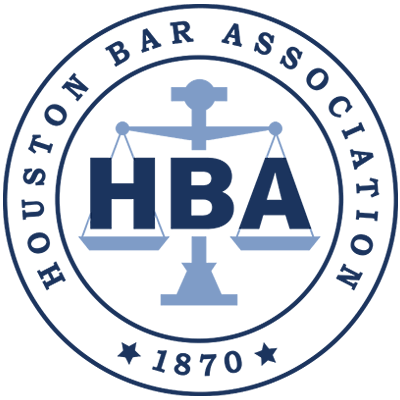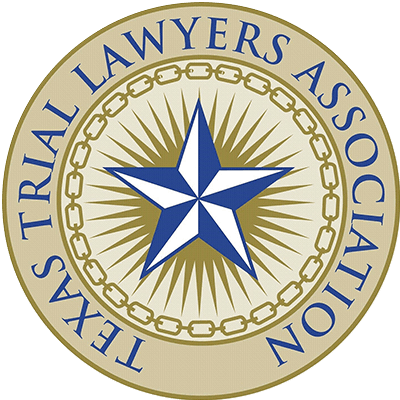Texas Mobile Offshore Drilling Unit Accident Lawyer
The mobile offshore drilling unit accident lawyer team at Trey Barton Law has extensive experience fighting for injured workers hurt or tragically killed on jack-up rigs, semi-submersibles, drillships, and other MODUs operating in the Gulf of Mexico. Our legal team pursues maximum compensation for maritime accidents, including medical expenses, lost wages, and permanent disabilities caused by offshore drilling failures.
The Texas MODU injury lawyers at our law firm provide free consultations and handle offshore rig injury cases on a contingency basis. We only get paid if clients win.
Call 832-916-2526 or contact us online today to speak with a Texas mobile offshore drilling attorney.
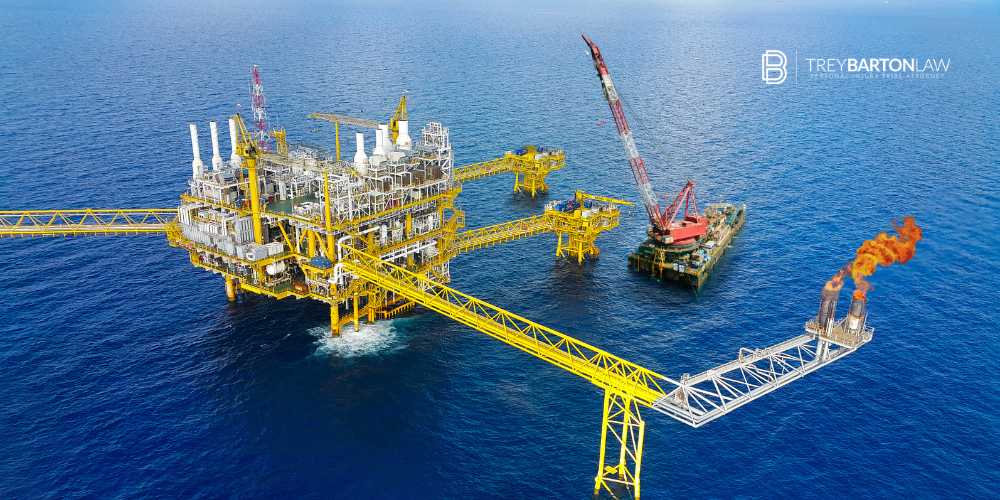
Legal Options Our Texas MODU Lawyers Pursue
Admiralty law governs maritime activity, including offshore drilling operations. This federal law determines how offshore accident claims are handled.
Jones Act Claims For Injured Seamen Working On Mobile Rigs or Platforms
- The Jones Act applies to crewmembers on mobile offshore drilling units that qualify as vessels.
- Jones Act claims allow injured seamen to sue their employer and recover maintenance and cure benefits during recovery.
- Commonly used by roustabouts, drillers, or rig hands assigned to MODUs, Jones Act cases cover a range of workplace injuries sustained offshore.
To file a claim under the Jones Act, the offshore worker must qualify as a “seaman”. Under the Jones Act, injured oil rig workers can recover financial compensation for lost wages, future earning capacity, pain, maintenance and cure, and medical expenses. Unlike workers’ compensation, Jones Act claims require proof of negligence, but even minor faults can trigger Jones Act liability. A successful Jones Act claim can result in significantly higher settlements than traditional claims.
To understand whether the Jones Act applies or for skilled Jones Act claims assistance, contact our Texas Jones Act attorneys for a free case review.
Longshore and Harbor Workers' Compensation Act - LHWCA Claims For Injured Workers (Not Seamen)
The Longshore and Harbor Workers’ Compensation Act (LHWCA) is a federal law covering offshore workers not classified as seamen under the Jones Act: construction crews, divers, and certain technicians working offshore. This also applies to jack-up rigs and semi-submersibles when not treated as vessels.
General Maritime Law
- Applies to vessel-status MODUs.
- Rig owners must provide a seaworthy rig and pay maintenance and cure after personal injuries, regardless of fault.
Death On High Seas Act
- Allows maritime accident claims for fatalities occurring beyond three nautical miles from shore.
- This federal law applies to offshore workers or passengers in deepwater drilling operations.
We also have extensive knowledge of:
Outer Continental Shelf Lands Act (OCSLA): This federal law applies to offshore oil and gas operations on the Outer Continental Shelf, particularly involving fixed platforms. It allows certain workers who don’t qualify as seamen to recover under the LHWCA, and may permit state law to apply when federal law is silent and the structure is not a vessel.
- U.S. Coast Guard MODU Regulations: Covers design, inspection, safety systems, lifesaving measures, and drills for offshore oil production facilities.
- International Maritime Organization (IMO) MODU Code: This applies to international mobile offshore units entering the country’s waters.
Some of the Worst Oil Rig Disasters in History
Deepwater Horizon Oil Spill
The Deepwater Horizon, operated by BP, marked the most notable incident in the country’s oil industry. The Deepwater Horizon explosion killed 11, injured many, and spilled 4 million barrels into the Gulf of Mexico. This resulted in legal action, causing BP and other industry providers to pay billions of dollars in total damages.
Piper Alpha Disaster
The Piper Alpha, operated by Occidental Petroleum, was one of the deadliest oil rig disasters in the industry, taking 167 UK lives. With insured losses of 1.4 billion, this is the most expensive man-made incident in the world.
Other offshore oil rig disasters include:
- Alexander Kielland Disaster
- Seacrest Drillship Disaster
- Ocean Ranger Disaster
- Bohai 2 Oil Rig Disaster
- Mumbai High North Disaster
- Usumacinta Disaster
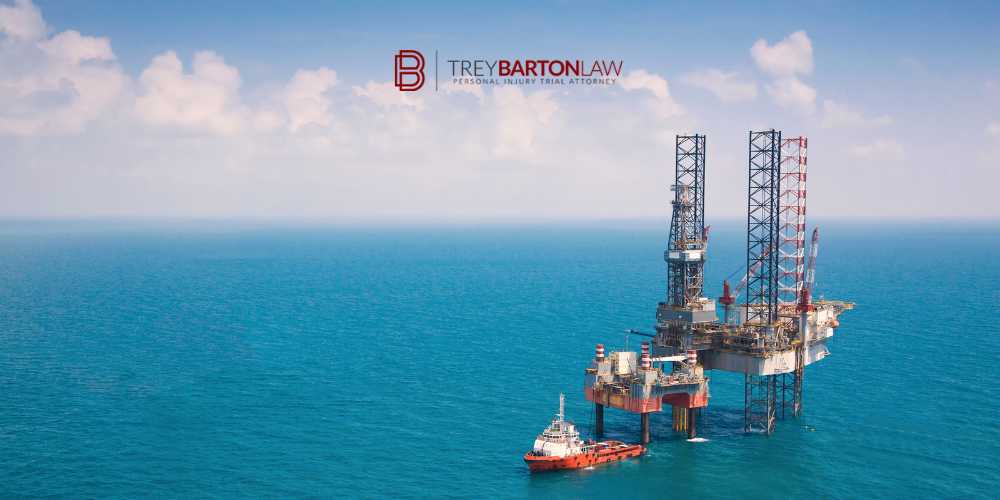
Legal Representation For Injured Oil Rig Workers On Mobile Drilling Rigs In The Gulf Of Mexico (Gulf of America)
Jack-Up Rig Accident Lawyer
The most dangerous events occurring in the offshore oil and gas industries involve jack-up rig accidents. Common causes of jack-up rig accidents include jacking system failures, damaged legs, or unstable footings. Safety violations and sudden vertical movement can lead to catastrophic injuries or death. Oil rig workers may suffer severe injuries in jack-up rig accidents caused by fire, explosion, or failure to secure the jack-up rig during rough seas. Jack-up rig accident victims face extensive medical bills, permanent disability, and lost wages. If a jack-up rig accident occurs in the Gulf of Mexico due to safety failures or aging drilling equipment, a Texas jack-up rig accident lawyer can provide legal assistance in your case.
Our jack-up rig accident lawyers help injured workers and families of fatal accident victims maximize settlements under various legal protections.
Because jack-up rigs are mobile in towing, they qualify for Jones Act claims. This means:
- Injured oil rig workers on jack-up rigs can sue their employer under the Jones Act.
- Jack-up rig employees are entitled to maintenance and cure or unseaworthiness claims.
- Employees injured in jack-up rig accidents can obtain additional compensation beyond workers’ compensation or LHWCA unless they are shore-based or non-crew contractors.
Oil rig owners, oil companies, and others can all be held responsible in jack-up rig accident cases. Jack-up rig accident victims may be entitled to financial compensation for lost wages, medical expenses, pain and suffering, and other damages.
Offshore workers hurt in a jack-up rig accident shouldn’t rely solely on workers’ comp, which fails to cover all damages. A skilled Texas jack-up rig accident lawyer can help recover compensation, secure punitive damages, and protect the rights of injured parties and their families.
If you suffered serious injuries or a loved one died from fatal injuries, contact a Texas jack-up rig accident lawyer today to schedule a free case review.
Semi-Submersible Rig Accident Lawyer
Semi-submersible oil rig accidents often involve complex failures in ballast control, dynamic positioning systems, and anchor handling, leading to catastrophic incidents. These are classified as vessels under maritime law, making oil rig workers eligible for additional compensation and protections under the Jones Act and general maritime law.
A Texas semi-submersible oil rig accident lawyer can assist injured oil rig accident victims and families in filing negligence claims seeking full medical care, lost wages, and holding rig owners or contractors responsible for preventable offshore accidents. To hire a semi-submersible rig accident attorney who can recover the compensation you deserve, contact the legal team at our law firm.
Semi-Submersible Platform Accident Lawyer
Semi-submersible platform accidents typically involve structural instability, mooring line failure, or system malfunctions, and increased risks in rough seas. Fire or explosion, crane failures, or falls caused by safety violations are also common causes of severe injuries and deaths.
Most injured offshore workers can file a claim under the Longshore and Harbor Workers’ Compensation Act or Outer Continental Shelf Lands Act protections.
While rare, offshore workers may file a claim under the Jones Act if:
- They spend at least 30% of their total work time aboard it or other vessels under common ownership, and their work contributes to the mission or purpose.
- The semi-submersible platform can power through navigable waters, isn’t permanently moored or fixed to the seabed, and is used in transportation, offshore operations, or support.
A knowledgeable Texas semi-submersible platform lawyer can evaluate the circumstances, identify companies responsible, and pursue justice for oil rig accident victims. Offshore workers and their families may be entitled to fair compensation that reflects the severity of the mobile oil rig accident, including medical expenses, lost wages, future earnings, and pain and suffering. Depending on the impact and classification, our Texas MODU lawyers can also recover compensation through third-party lawsuits. Our legal team’s combined experience and strategic approach help ensure victims are fully protected and able to secure compensation under applicable laws.
Drillship Accident Attorney
Generally, offshore workers assigned to drillships, like drillers, crane operators, or roustabouts, can qualify as seamen and pursue Jones Act claims. These allow injured mobile oil rig workers to seek compensation for negligence, unseaworthiness, and maintenance and cure after mobile oil rig accidents. However, this depends on the drillship’s function and mobility.
A drillship doesn’t qualify if:
- It is permanently moored or docked for extended periods
- It has been repurposed for production
- It lacks navigational power, or no longer moves through navigable waters
If reclassified, workers may instead fall under:
- Longshore and Harbor Workers’ Compensation Act (LHWCA)
- Outer Continental Shelf Lands Act (OCSLA)
A Texas drill ship accident attorney can identify which laws apply, determine status, and file claims for medical bills, lost wages, future income, and other damages tied to drilling equipment failures, dangerous conditions, or third-party liability.
Liftboat Accident Lawyer
Liftboat accidents can lead to severe injuries or deaths due to their unique design. Often, MODU accidents happen from safety failures, including legs collapsing, instability in rough seas, and collisions. Fires, explosions, electrical faults, and falls also contribute to serious injuries occurring.
Offshore workers suffering personal injuries in mobile oil rig accidents may qualify as seamen and can file a claim under the Jones Act if they spent at least 30% of their time aboard and contributed to the mission, such as maintenance or construction.
A Texas liftboat accident lawyer can:
- Determine Jones Act eligibility and whether the employer’s negligence or unseaworthiness contributed to the oil rig accident
- Identify cases for maintenance and cure, and additional damages under General Maritime Law
- Collect evidence, analyze witness reports, and prepare lawsuits against employers, operators, or contractors
Our Texas mobile offshore drilling unit accident attorney team can pursue fair compensation that covers medical bills, loss of income, and future income capacity, pain and suffering, and other damages.
Common Types of Offshore Injury Cases Our Texas MODU Lawyers Handle
Oil Rig Capsize and Collapse / Oil Platform Capsize and Collapse
Unlike other accidents, oil platform or oil rig capsizes and collapses include a combination of the highest fatality rates in the offshore oil and gas industries and widespread damage to nature. Oil rig and platform capsize accidents generally happen when weight shifts, legs give out, or ballast systems fail. Jack-up rigs can tip if the footing is unstable. Semi-submersibles may sink if moorings snap or balance controls stop working. When platforms or oil rigs collapse, those working will typically suffer fatal injuries. Often, oil rigs and oil platforms capsize and collapse due to overloading and safety violations by natural gas and crude oil companies, which put profits above the value of human lives.
Blowout and Explosion
Explosions happen when drilling rigs don’t have adequate pressure control due to blowout preventer failure, poor cement jobs, or rushed offshore drilling operations that skip safety inspections. Natural gas buildup can ignite from static, heat, or equipment sparks, releasing toxic fumes and causing deadly blasts. Mobile offshore drilling rig explosions often lead to burns, other injuries, and fatalities.
Contact a Texas oil rig explosion lawyer to learn more.
Underwater Pipeline Accident
Underwater pipeline accidents happen due to safety failures and damage during excavation or dredging operations. This can lead to rupture, oil or gas leaks, and explosions.
Offshore Oil Rig Fire
Mobile platform and oil rig fires often start from fuel line leaks, improper hot work, or electrical failures caused by ignored safety protocols. Injured oil rig workers may suffer burns, toxic fume exposure, or fatal head or spine injuries. Oil companies, the rig owner, or a third-party company may be liable depending on where the accident occurred and who controlled the workplace conditions.
Contact a Texas oil fire accident lawyer to learn more.
Weather-Related Offshore Platform Disasters
Weather-related offshore platform disasters are often made worse by oil company failures. When oil companies refuse to shut down, they can and should be held responsible for gross negligence.
Mobile Offshore Drilling Unit Collisions
MODU collisions often happen during towing, positioning, or navigation in poor visibility, and are frequently caused by operator error, faulty DPS, or miscommunication with support crews. These offshore accidents can crush equipment, cause falls, or rupture fuel and natural gas lines, leading to exposure to toxic fumes, burns, or fatal injuries. Liability may fall on the owner, crew, or other companies managing the move.
Dragging Anchor Incident
A dragging anchor accident can happen when a MODU loses holding due to failures in safety and monitoring sea conditions. These events often lead to collisions, pipeline strikes, or groundings, resulting in structural damage, falls, and severe injuries from impact, crush hazards, or exposure to toxic fumes if gas lines rupture. Typically, the oil rig operator, anchor-handling, or anchor-deploying company is to blame for these offshore accidents.
Helicopter and Crew Boat Accident
Helicopter and crew boat accidents often result from poor weather decisions, safety failures, or overloading by the rig operator or transport company. Collisions, hard landings, or capsizing can cause the entire crew’s deaths. Liability may involve negligent navigation, improper dispatch protocols, or defective equipment.
Moon Pool Accident
Moon pool accidents occur when poor visibility or lack of proper safety protocols during subsea operations lead to a fall, crush incident, or drowning. Individuals working can suffer crush injuries or other catastrophic injuries.
Diving Bell Accident
Diving bell accidents often result from loss of pressure and malfunctioning life support systems or umbilical connections. Safety failures often lead to crew deaths.
Equipment Failure
Equipment failure on mobile oil rigs or platforms often results from safety failures in maintaining, installing, or ensuring inspection schedules are met. Owners, manufacturers, or contracted companies are typically responsible for oil rig worker injuries or fatalities.
Gangway Accident / Ladder Failure / Basket Transfer Accident
Gangway accidents, ladder failures, and basket transfer incidents are frequently caused by improper rig positioning, equipment defects, or failure to secure lines during transfer. Responsibility often lies with the rig crew, operator, or contractors who failed to follow safety protocols.

Understanding Offshore Oil Rigs
- Jack-Up Rigs: Mobile platforms with legs lowered into the seabed.
- Drillships: These house oil rigs and are often used for oil exploration.
- Swamp Barge Rig: Designed for shallow, marshy environments and is commonly used for inland drilling where traditional rigs can’t operate.
- Inland Drilling Barge: Used in shallow waters and protected coasts.
- Platform Drilling Rig (Modular Mobile Unit): Mounted on fixed platforms, but still considered a MODU if it’s mobile and self-contained. Platform rigs can be moved from one fixed platform location to another.
Semi-Submersibles: Are designed to operate up to 10,000 feet, and are stable than drillships in rough seas. These may qualify as floating or mobile depending on the structure.
- Floating Production, Storage, and Offloading System Unit: FPSOs support oil and gas processing facilities and are typically moored for long periods of time.
- Tension Leg Platform: Tension leg platforms float but are anchored to the seafloor to minimize vertical movement.
- Spar Platform: Just like tension leg platforms, spars are secured to the seabed. Three types of spars include: The three types of spars include: Conventional (designed with a cylindrical hull), Truss (designed with multiple parts and features hard tanks), and Cell (designed with several vertical cylinders)
- Production Barge: Anchored nearshore that handles processing and storage of hydrocarbons.
Fixed platforms are permanently attached by legs driven into the seafloor. They typically consist of production facilities and decks for support. These are not classified as MODUs and generally don’t qualify for maritime protections.
- Gravity-Based Structure (GBS): This sits on the seafloor under its own weight.
- Compliant Tower: Compliant Towers support production facilities and drilling decks at up to 3,000 feet.
How a Texas Mobile Offshore Drilling Unit Accident Attorney Can Help
Maximum Compensation For Offshore Oil Rig Workers With Catastrophic Injuries
Mobile offshore oil platform or oil rig accident victims should NEVER rely on company physicians or internal investigations. Independent parties should ALWAYS evaluate personal injuries.
A Texas mobile offshore drilling unit accident lawyer can investigate, depose supervisors or witnesses, and demand full recovery for medical expenses, lost wages, reduced future earning capacity, pain and suffering, and other damages. Settlements often increase substantially when our MODU attorneys identify equipment defects, operational violations, or safety noncompliance tied to contractors or rig owners. To maximize settlements, mobile offshore oil platform or oil rig accident victims must hire an attorney before the evidence is destroyed and claim deadlines arrive.
How a Texas Offshore Death Lawyer Helps Families Of Oil and Gas Workers Killed Working Offshore
Surviving family members of offshore workers killed in mobile oil platform or oil rig accidents should NEVER trust company-led medical reports or investigations into why the accident happened. Oil rig accident attorneys whose practices have access to the experts and resources required to protect your interests are crucial. A Texas offshore death lawyer can file a lawsuit and recover the maximum compensation you deserve for loss of support, future income, emotional suffering, and funeral costs.
Our Texas MODU attorneys fight to ensure oil companies and other parties pay for their negligence, leading to catastrophic mobile oil rig accidents.

Statute of Limitations For Offshore Mobile Offshore Drilling Unit Accident Cases
The statute of limitations for MODU cases depends on the type and qualifications:
- Texas personal injury/wrongful death (general offshore accident): two years
- Jones Act claims: three years
- Longshore and Harbor Workers’ Compensation Act (LHWCA): one year to file, two years to report injury
- Outer Continental Shelf Lands Act (OCSLA): one year to file, two years to report personal injuries
- Death on the High Seas Act (DOHSA): three years
- Maintenance and cure (maritime remedy): three years (varies by court)
Contact a Texas Mobile Drilling Rig Lawyer For a Free Consultation
If you suffered severe injuries or lost a loved one in a mobile offshore oil rig accident, don’t wait. Oil and gas companies’ insurers move quickly to limit responsibility. A Texas mobile offshore drilling unit accident lawyer from our legal team is ready to fight for financial compensation. We handle complex maritime claims and pursue justice for families devastated by offshore rig explosions, collapses, and fatal safety violations.
Call 832-916-2526 today for a free consultation.
Practice Areas
Oil and Gas Locations
Serving These Cities & Counties in Texas
Free Consultation
Our experienced Houston personal injury attorneys want to get to know you and understand your unique situation. We offer a free, no-obligation consultation. You don’t pay unless your case is won.
Awards & Recognition
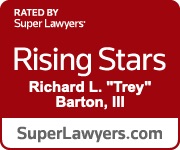
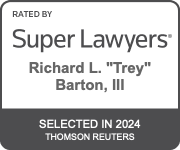



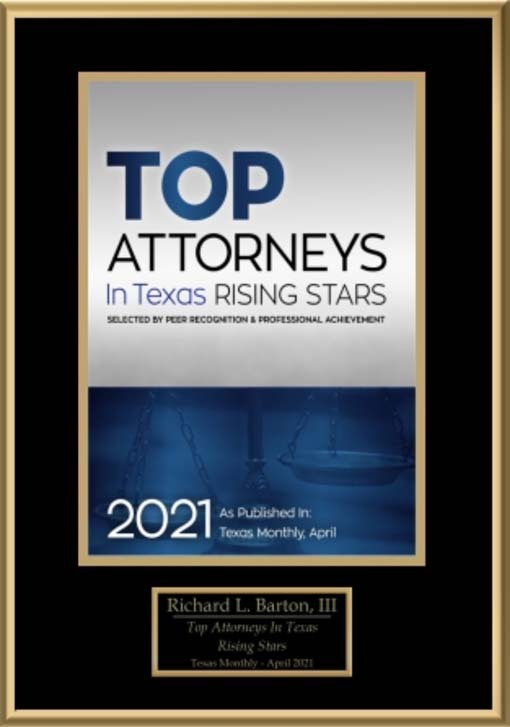
No Fee Unless You Win
Trey Barton understands the hardships injured people and their loved ones face as they try to heal from their accident. Every case is prepared as if it is going to trial. This gives you the best opportunity to obtain a fair recovery for your case, and ensures I am positioned to take the case to trial if the insurance company does not give you the money you deserve.


